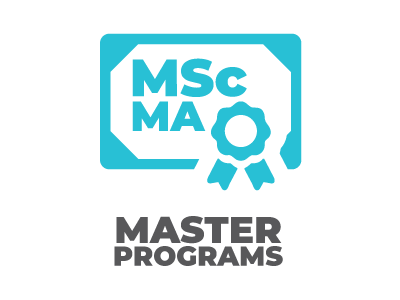DESTINATION:
CANADA

Studying in Canada provides an enriching and rewarding experience for international students. Known for its high-quality education system, Canada offers a diverse range of academic programs and institutions that cater to the needs and aspirations of students from around the world. With its welcoming and multicultural society, studying in Canada promotes a global perspective and fosters a vibrant learning environment.
One of the key advantages of studying in Canada is the exceptional quality of education. Canadian universities and colleges consistently rank among the best in the world, offering rigorous academic programs and innovative research opportunities. With a strong emphasis on practical, hands-on learning, students gain valuable skills and knowledge that are highly valued by employers worldwide. Additionally, Canadian institutions often have state-of-the-art facilities and cutting-edge resources, further enhancing the learning experience.
Canada's multicultural society is another appealing aspect for international students. With its diverse population and inclusive policies, Canada celebrates and embraces cultural differences. Students have the opportunity to engage with people from various backgrounds, fostering cross-cultural understanding and creating lifelong connections. Moreover, Canadian cities are known for their safety, cleanliness, and high quality of life, providing a comfortable and welcoming environment for international students.
Furthermore, Canada offers numerous opportunities for post-study work and immigration. The country provides pathways for international students to gain work experience during and after their studies through programs such as co-op placements and post-graduation work permits. This allows students to apply their newly acquired skills in the Canadian job market and potentially obtain permanent residency. Canada's welcoming immigration policies and strong economy make it an attractive destination for those seeking long-term career prospects and a high standard of living.
In summary, studying in Canada offers international students a top-notch education, a multicultural environment, and promising career opportunities. With its renowned educational institutions, inclusive society, and favorable immigration policies, Canada remains a highly sought-after destination for students seeking a world-class education and a global perspective.


International students who have graduated from a Canadian university or college have the opportunity to work in Canada for up to one year after they receive their degree or diploma. International students can work on campus without a work permit. Plans are being made to allow international students to work off-campus, too.
Canada is a popular destination for international students who are looking to pursue their studies and gain valuable work experience. To work in Canada as a student, there are several important steps that you need to take. First, you will need to apply for a study permit from the Canadian government. This permit will allow you to study and work in Canada for the duration of your program.
Once you have your study permit, you can start looking for work opportunities. As an international student, you are allowed to work part-time (up to 20 hours per week) during the academic year and full-time during scheduled breaks (such as summer holidays). There are many job opportunities available for students in Canada, including on-campus jobs, off-campus jobs, and co-op placements. It's important to start your job search early and to have a well-written resume and cover letter to make a good impression on potential employers.
In addition to finding a job, you will also need to apply for a Social Insurance Number (SIN) from the Canadian government. This number is required for all individuals who work in Canada, including students. You can apply for your SIN online or in person at a Service Canada office. With your study permit, work experience, and SIN, you will be well on your way to building a successful career in Canada as a student.
• Canada’s universities maintain high standards of academic excellence
• Internationally recognized degrees
• Canadian government supports international students even after they have graduated
• Learn or improve another language
• Canada is a large and beautiful country which borders three oceans
• Multicultural country
• Peaceful, politically stable, and safe country
• Easy immigration after studies

For individuals seeking an engaging educational experience, Canada stands out as the ideal destination. The country's multicultural society ensures representation from almost every ethnic group, creating a diverse and inclusive environment. Furthermore, Canada holds a global reputation as a leader in language training, making it particularly accommodating for foreign students.
A Foundation Year serves as a one-year program designed to introduce students to college-level courses. During this period, students delve into a wide range of subjects, including technology, humanities, science, business, arts, and engineering. Upon completion of the Foundation Year, individuals are equipped with the necessary foundation to pursue a full degree program.
Canada's higher education system encompasses a variety of institutions and authorities that regulate skills training and post-secondary education. The region fosters a welcoming atmosphere, embracing students from around the world and offering a plethora of colleges and universities to choose from.
Required Documents:

Canadian universities are renowned for their commitment to high educational standards, ensuring that a bachelor's degree obtained from Canada holds global recognition for its quality. A wide range of bachelor's degree programs are available to students across various fields, including popular options such as biotechnology, business and economics, engineering, computers, communication and media, English, literature, natural sciences, education, and social work.
Completing a bachelor's degree in Canada typically takes three to four years. With over two hundred programs to choose from across different universities in the country, students have the opportunity to select a program that aligns with their interests and aspirations.
Canadian universities prioritize delivering excellence in their academic offerings, making their bachelor's degrees highly esteemed worldwide. Additionally, combined program options are available to students, allowing them to pursue multiple degrees simultaneously. The specific eligibility criteria, duration, and fees for bachelor's degrees may vary depending on the chosen institution.
To be eligible for bachelor's degree programs in Canada, students are typically required to have completed 12 years of education. Most universities follow a two-semester academic year, and it is advisable for prospective students to familiarize themselves with the different application procedures to facilitate admission into their desired program. Students with strong academic performance may have the opportunity to receive scholarships when enrolling in a program, reducing the overall cost of their education.
Canadian universities also offer flexibility, allowing students to switch bachelor's degree programs easily. Furthermore, students may have the option to pursue a combined program, enabling them to obtain two degrees concurrently.
Required Documents:

Public education in Canada is recognized as a priority by the government, with funding provided at federal, provincial, and local levels. As a result, Canada has one of the highest rates of enrollment in post-secondary education among students who have completed secondary school. This emphasis on education contributes to Canada's high living standards, consistently ranking in the top 10 on the UN's Human Development Index.
The country is known for its stunning landscapes, low crime rates, clean cities, excellent healthcare, and technologically proficient population. Despite its relatively small population, Canada is home to some of the world's top-notch higher education institutions, and Canadian master's degrees are highly regarded for their quality. In Canada, universities are the primary institutions offering master's degree programs, covering a wide range of disciplines from arts to engineering to MBA programs.
Prospective students applying for a master's degree typically need to meet general requirements, including holding a bachelor's degree from an accredited university, providing reference letters, submitting a written application demonstrating their interest in the specific program, and often taking a standardized test such as the Graduate Record Examination (GRE) or the Graduate Management Admissions Test (GMAT). International students who are non-native English speakers may also be required to take the Test of English as a Foreign Language (TOEFL).
The duration of a master's degree in Canada varies depending on factors such as the university, academic field, and whether the student attends full-time or part-time. Programs typically range from one to two years and encompass a combination of coursework and research. Some programs may require the completion of a comprehensive thesis, while others may involve a project or even an internship experience.
Required Documents:
Canada is a top destination for international students who are looking to pursue their education in a welcoming and inclusive environment. The country has a strong reputation for offering high-quality education, with several of its universities consistently ranked among the best in the world. Canadian universities offer a diverse range of programs and research opportunities, making it an attractive destination for students from all over the world.
One of the main advantages of studying at a Canadian university as an international student is the country's welcoming and inclusive culture. Canada is known for its multiculturalism and diversity, and international students can expect to feel supported and included in their university community. Additionally, many Canadian universities offer programs and services specifically designed for international students, such as language support, mentorship programs, and cultural events.
Another advantage of studying in Canada is the country's strong emphasis on research and innovation. Many Canadian universities have a strong focus on research and offer opportunities for students to get involved in cutting-edge research projects in a wide range of fields. This provides international students with valuable experience and skills that can be applied in their future careers. Additionally, Canada is home to several research-intensive industries, which can offer international students unique internship and job opportunities.


Mericler is a Canadian educational umbrella under which a range of services is delivered worldwide by experts and professionals who have accumulated years of international experience in their specialty fields. Starting from Toronto, Canada...
20 Carlton St. (Suite
no. 121), Toronto,
Ontario, M5B 2H5,
Canada
+1 647 933 9098
+1 647 627 3938
+1 647 933 9097
info@mericler.net
Esentepe, Yazarlar Sk.
No 21, 34381
Şişli/İstanbul
+90 212 27 555 12/3
+90 544 294 46 38/9
info@mericler.net
8315 Spectrum Irvine
California 92618
+1 949 771 7214
+1 949 771 7214
info@mericler.net
Focus Education &
Immigration B-32
Supath-2 Opp. Hotel
Fairfield, Nr. Old
Wadaj Ashram Road,
Ahmedabad 380 013,
Gujarat, India
+91 97235 96061
+91 97235 96061
india@mericler.net
48 Sakponba road,
opposite First bank,
IK pharmacy building,
2nd floor, Benin city,
Edo state, Nigeria
+234 905 599 7001
+234 905 599 7001
nigeria@mericler.net